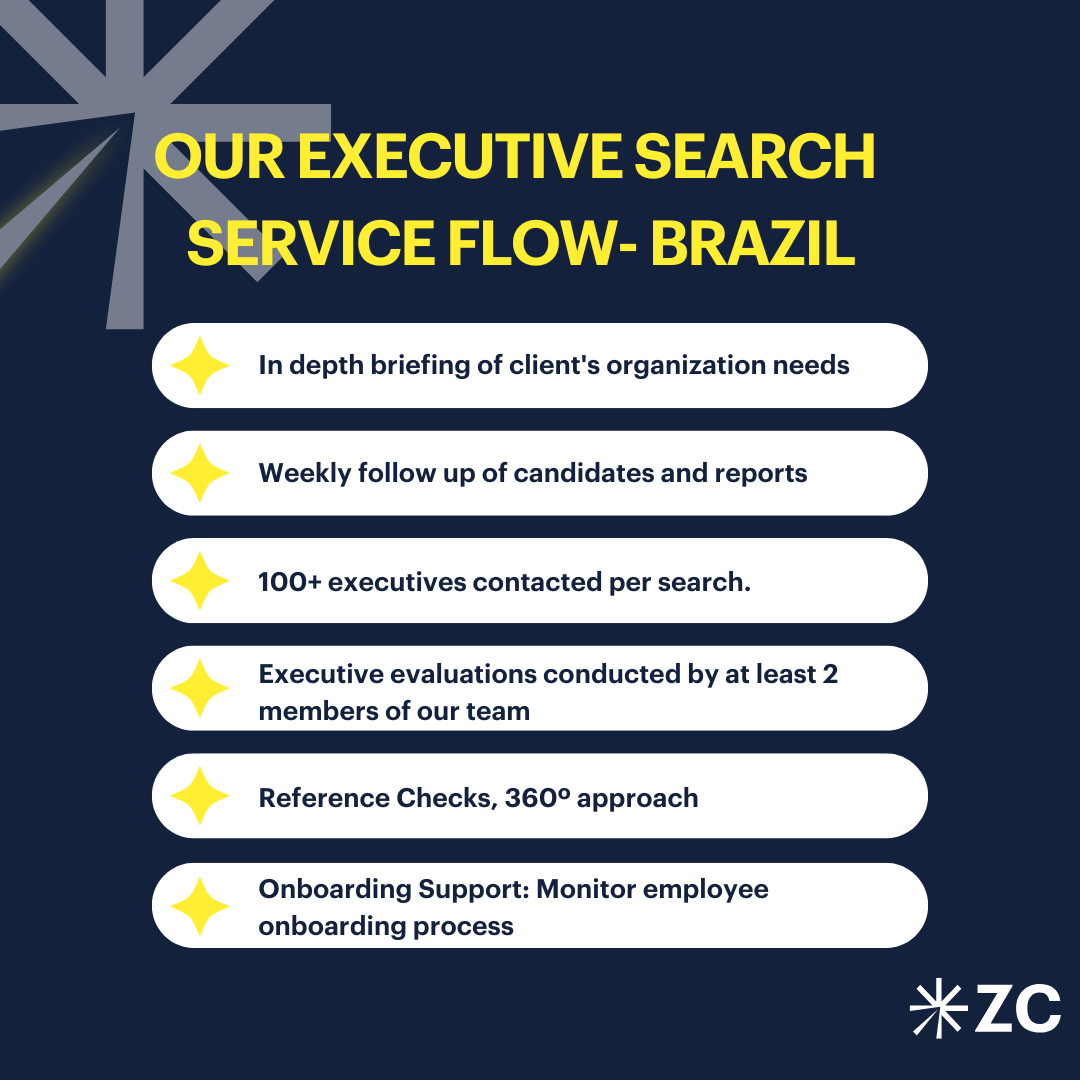Brazil has a GDP of $1.92 trillion in 2022 and it is the world’s 11th economy and the largest economy in Latin America. Brazil’s service sector includes a diverse range of industries, including hospitality, financial services, retail sales, and professional services. The financial sector has particular significance in the country. It plays a key role in the financing of large projects, particularly mining and aerospace.
Travel and tourism are key parts of the services sector, contributing significantly to revenues in the country. This includes revenues generated by hotels, travel agencies, airlines, restaurants and other directly associated activities.
The development in these industries creates a constant demand for highly qualified executive talent. However, Brazil is falling behind in the dispute for talent. According to data from Fragomen in Brazil, a company specialized in immigration, only in 2022 the number of Brazilians who applied for a visa and residence for Portugal increased by 200%. For the United States, growth was 114%, and for Australia and New Zealand, it reached 567%. In the last ten years, this demand has been recorded, with the exception of the period of closed borders in the pandemic.
Challenges of the executive search market in Brazil
- Intense Talent Competition: The executive search market is highly competitive and extends beyond national borders, as Portuguese and US firms, as well as Nearshore players, are actively engaging in recruiting talent.
- Impact of Nearshore Players: The entry of Nearshore players, traditionally hesitant to navigate Brazil’s bureaucratic and tax-heavy processes, adds a new dimension to the talent competition. These players, though previously uninterested, are now actively participating in the recruitment, intensifying the challenges faced by local recruiters.
- Bureaucratic and Tax Hurdles: The country’s bureaucratic environment poses significant challenges for foreign companies looking to establish a presence in the country. Incorporating a business in Brazil is described as time-consuming, and there are complex legal restrictions that companies must handle. The tax system involves multiple levels of government, which further complicates the process for international investors.
- Rising Wages: The demand for executive talent has led to an increase in wages, making it more challenging for companies to attract and retain skilled professionals. The average salaries have seen an upward trend.
- Language Skills and Cultural Diversity: The country’s demographic history has resulted in individuals speaking multiple languages, including Italian, Spanish, and German. This cultural diversity can be both an advantage and a challenge for recruiters.
- Perception of Brazil as a Challenging Market: Despite the potential and talent pool, the country is still perceived as a challenging market, both politically and bureaucratically. This perception, however, is changing, with a recognition that Brazil is becoming more digitized and is a crucial part of the strategy for the entire Latin American region.

In Zavala Civitas, we have had a presence in the Brazilian market for over a decade with seasoned professionals and industry-specialized experts in finding executive and high-middle management talent.
If you find that executive search might be of interest, you can read more about our service flow and methodology or directly contact us to learn more firsthand.








